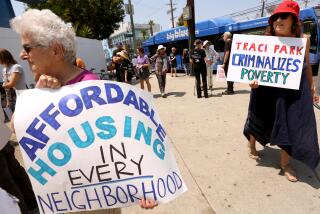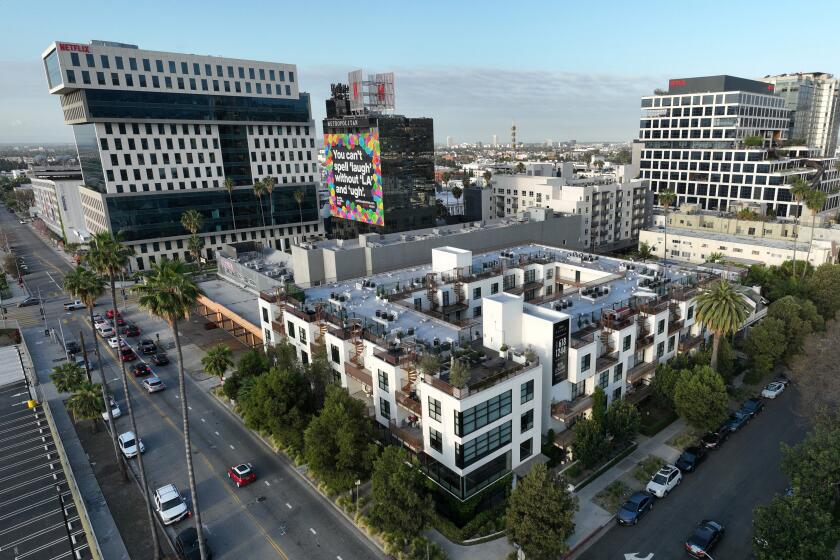Coalition Decries Cuts in Aid to Poor : Welfare: Speakers at anti-hunger conference say government agencies abandoned their obligation to improve social services after the riots.
- Share via
Nearly a year after the riots spotlighted poverty in Los Angeles, anti-hunger advocates criticized government agencies on Thursday for continuing to slash services for the poor.
“That is very troubling to me,” said the Rev. Eugene L. Boutilier, a minister with the United Church of Christ and a longtime local advocate for the poor.
Echoing the sentiments of many others at the two-day conference of the California Hunger Action Coalition that began Thursday in downtown Los Angeles, Boutilier praised residents and businesses that provided relief immediately after last spring’s civil unrest.
But he criticized government agencies, saying they abandoned “their obligation to feed and educate people who don’t have income and don’t have a way to get it.”
“There have been no initiatives to strengthen social services in the aftermath of the riots,” Boutilier said. “After years of elected officials telling us that government is the problem, too many Americans believe it. As a result, we’re not building (government-subsidized) affordable housing . . . but we’re cutting welfare, cutting public education and public health.”
Added Carolyn Olney, vice chair of the California Hunger Action Coalition: “I haven’t heard any of the mayoral candidates pay attention to hunger, poverty, homelessness, except to make disparaging remarks about the homeless.”
More than 1.3 million residents of Los Angeles County live in poverty, according to the California Food Policy Advocates of San Francisco. Statewide, the group said, the situation is also grim: about 15% of California residents live below the federal poverty line, which is set at $11,890 annual income for a family of three.
California’s poverty rate--by definition, the threshold at which a family is unable to buy food for a proper diet--is 14th highest in the country, according to the San Francisco organization.
Children are among the hardest hit: One of four children in California are hungry or at risk of hunger, said Olney, citing a 1991 study by the Food Research and Action Center in Washington. Advocates say poverty in the state has worsened in recent years because of a stubborn recession, the high cost of housing and welfare cuts.
In Los Angeles County, General Relief welfare benefits to more than 100,000 single adults was cut by 14% last fall. Welfare payments for families have been cut three times in the last 18 months; the maximum grant for a family of three is $625 a month. After voters last fall rejected Gov. Pete Wilson’s Proposition 165--which would have slashed the Aid to Families With Dependent Children program by 25%--the governor in February proposed nearly identical cuts.
The more than 75 anti-hunger advocates who came to the conference this week pledged to fight the governor’s proposed welfare cuts and explored ways to fight hunger locally. Many of them went to the Pico-Union Urban Garden, a project that grows vegetables for residents of the low-income Latino neighborhood.
Expressing optimism about the Clinton Administration’s proposed programs for the poor, conference participants also vowed to lobby for the expansion of food stamp programs and other federal entitlements.
More to Read
Sign up for Essential California
The most important California stories and recommendations in your inbox every morning.
You may occasionally receive promotional content from the Los Angeles Times.










